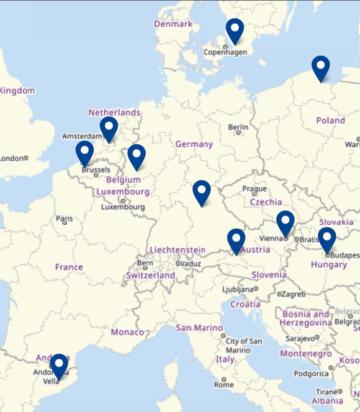Help us make the FRA website better for you!
Take part in a one-to-one session and help us improve the FRA website. It will take about 30 minutes of your time.

EU Charter of Fundamental Rights
54. pants - Tiesību ļaunprātīgas izmantošanas aizliegums
Nekas no šajā Hartā noteiktā nav interpretējams kā tiesības iesaistīties kādā darbībā vai veikt kādu darbību, kas vērsta uz kādu šajā Hartā atzītu tiesību un brīvību iznīcināšanu vai to ierobežošanu lielākā mērā, nekā tas paredzēts Hartā..



